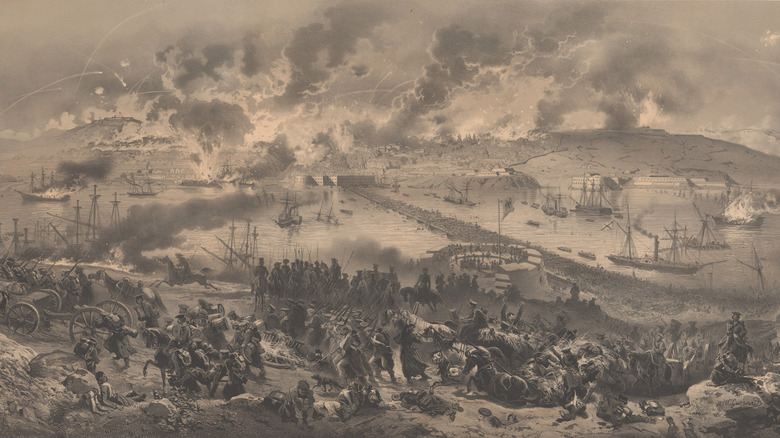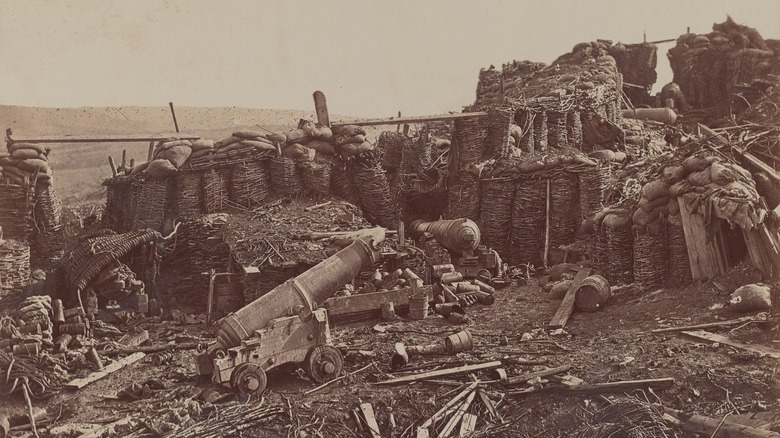This Was The Actual Cause Of The Crimean War
The Crimean War was one of the 19th century's most devastating conflicts. With Russia on one side and Britain, France, and the Ottoman Empire allied against it, the war led to considerable casualties on both sides. As History.com notes, the deaths were caused not only by the devastation of trench warfare, but also — and to a greater extent — by factors like weather and disease.
However, despite its bloody legacy, the Crimean War also led to several significant developments in areas like medicine, journalism, and literature. This was the war in which British nurse Florence Nightingale famously revolutionized medical care by implementing hygienic techniques like handwashing and maintaining sanitary conditions in field hospitals. It was also the first conflict to be documented by photojournalists. New technologies like telegraphs, steamships, and the wet plate collodion process for taking photos allowed journalists to send home vivid news of the war, particularly mistakes made by the British military and the terrible conditions in the field. The work of one British journalist named William Howard Russel inspired the famous poem "Charge of the Light Brigade," by Alfred Lord Tennyson. And the devastation on the Russian side inspired another great work of modern literature. After taking part in the fighting at Sevastopol, Russian novelist Leo Tolstoy used his experiences to write parts of his epic masterpiece "War and Peace." But what caused such destruction and innovation? Let's take a look into the actual cause of the Crimean War and see.
The Crimean War was caused by several converging factors
As these things tend to go, the origins of the Crimean War can be traced back to people bickering over religion. According to Historic UK, France and Russia were arguing over access to important Holy Land religious sites like Bethlehem. Although both countries practiced Christianity, France was Catholic, and found itself at odds with Orthodox Russia. After some Orthodox monks were killed in a clash with French monks in Bethlehem, the Russian Tsar laid the blame on the Ottoman Empire, which controlled the region at the time.
This, however, was not the only cause of the Crimean War. As the Ottoman Empire began to crumble in the 19th century, other countries began to vie for control of its territories it was losing, a diplomatic issue known as the Eastern Question. This is why Britain and France teamed up with the Turks — to help defend Ottoman territories from Russian expansion. Russian Tsar Nicholas I called the Ottoman Empire the "sick man of Europe," and had hopes of taking advantage of its disintegration. The religious quarreling proved to be a catalyst for these political tensions that had been brewing since the dawn of the century.
After nearly two and a half years of fighting, the allied forces were too much for the Russians. According to History Extra, peace talks began after they forced the Russians to evacuate Sevastopol in 1855, and the Treaty of Paris brought the war to an end in March of the following year.

